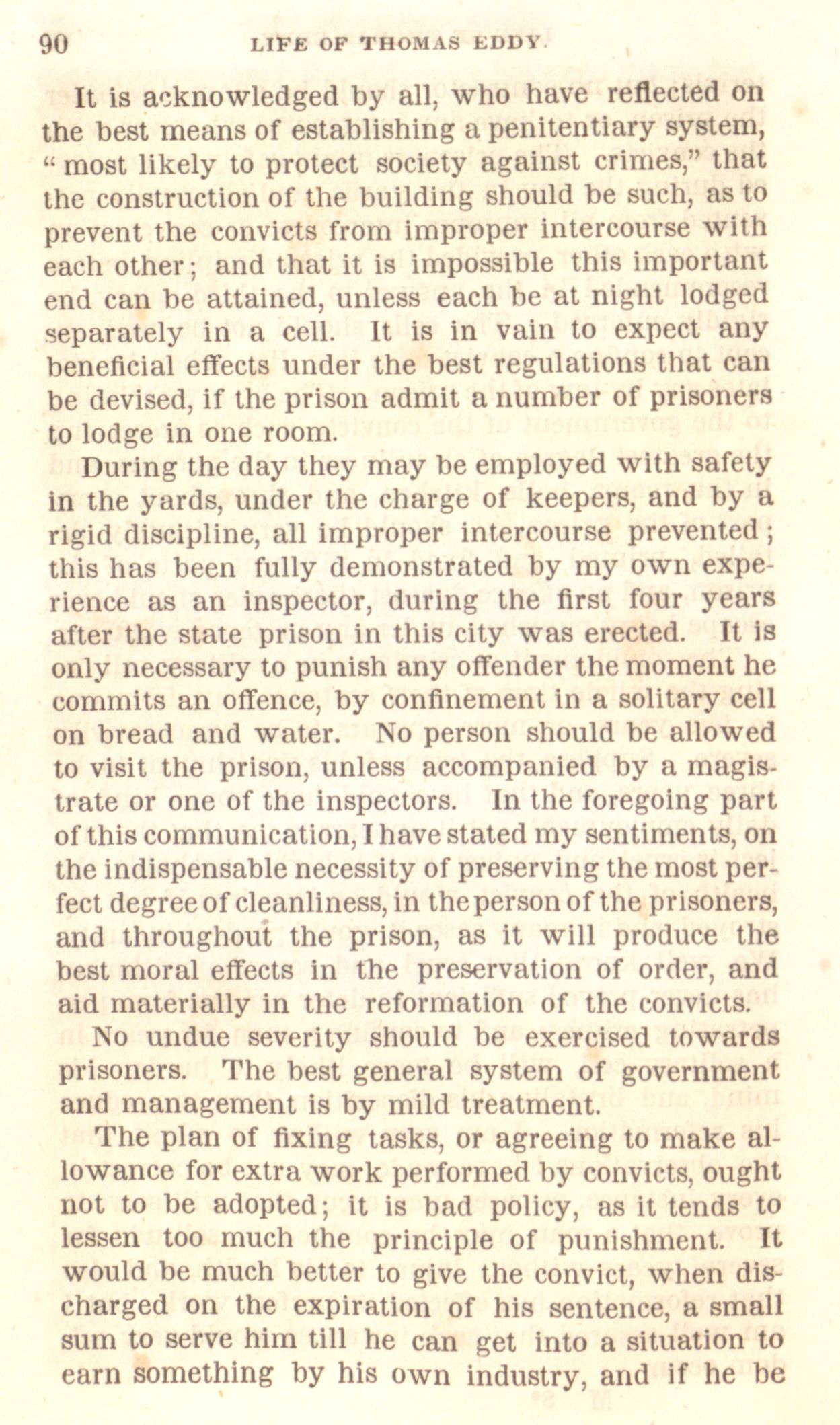It is acknowledged by all, who have reflected on
the best means of
establishing a penitentiary system,
most
likely to protect society against crimes, that
the
construction of the building should be such, as to
prevent the
convicts from improper intercourse with
each other; and that it is
impossible this important
end can be attained, unless each be at
night lodged
separately in a cell. It is in vain to expect any
beneficial effects under the best regulations that can
be devised,
if the prison admit a number of prisoners
to lodge in one room.
During the day they may be employed with safety
in the yards, under
the charge of keepers, and by a
rigid discipline, all improper
intercourse prevented;
this has been fully demonstrated by my own
expe-
rience as an inspector, during the first four years
after
the state prison in this city was erected. It is
only necessary to
punish any offender the moment he
commits an offence, by
confinement in a solitary cell
on bread and water. No person should
be allowed
to visit the prison, unless accompanied by a
magis-
trate or one of the inspectors. In the foregoing part
of
this communication, I have stated my sentiments, on
the
indispensable necessity of preserving the most per-
fect degree of
cleanliness, in the person of the prisoners,
and throughout the
prison, as it will produce the
best moral effects in the
preservation of order, and
aid materially in the reformation of the
convicts.
No undue severity should be exercised towards
prisoners. The best
general system of government
and management is by mild
treatment.
The plan of fixing tasks, or agreeing to make al-
lowance for extra
work performed by convicts, ought
not to be adopted; it is bad
policy, as it tends to
lessen too much the principle of punishment.
It
would be much better to give the convict, when dis-
charged
on the expiration of his sentence, a small
sum to serve him till he
can get into a situation to
earn something by his own industry, and
if he be

